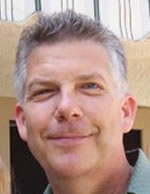When attorneys get a copy of opposing counsel's expert reports, sometimes they are quite surprised by what they read - it's just bad science. And, in these cases they will then retain their own expert to counter, and possibly quash, the other experts opinion. I've been retained in numerous cases to do this, and I'll discuss four to illustrate the benefit this has, and to help illustrate the kind of work that I do.
Recently, the Los Angeles District Attorney's Office retained me because they suspected that the forensic video analysis and photogrammetry performed by the defense wasn't based on science. I was provided with the security video from the business where the crime occurred, and with the report by the defense expert. In this case, the defense expert lacked training and experience in video analysis, photography, and photogrammetry (she opined on all three of these disciplines in her report). She also didn't follow best practices in the acquisition of the video, and didn't apply any standard method to the photogrammetry. I provided a report that the prosecutor presented to the defense attorney, and the defense withdrew their experts report.
In a civil case that I previously posted about, the defense hired a photography expert to photograph the scene of an accident to illustrate the level of illumination. This expert photographed the wrong area, used the wrong equipment, and presented photographs that misrepresented the area. I was hired by plaintiff's attorney to counter his testimony. I went to the scene and photographed the correct area following best practices and properly illustrated the illumination of the area. In addition, I provided cross examination questions, and the opposing expert basically admitted that he just followed directions of others and didn't know if he photographed the correct area in the proper manner. This resulted in a multi-million dollar settlement for the plaintiff.
In a military court marshal case, the prosecution brought in an expert in photographic comparison. In this case, the expert didn't follow standard protocols in their comparison and reached a conclusion that was well beyond what could be reached. The defense team brought me in to challenge this testimony. I provided the attorneys with the information they needed to understand the science of photographic comparison and to illustrate the weaknesses in the opposing expert's report. I also provided cross examination questions, which were used, word-for-word, and resulted in the prosecutor asking defense counsel why they didn't make a Daubert challenge. The reason was that they believed the strategy of showing the problems of the comparison was stronger then having it quashed in a Daubert hearing.
One last case was one in which the prosecution in a homicide case created a video to illustrate the illumination of the scene. A large segment of it totally misrepresented the scene, and the defense retained me to counter that evidence. I visited the scene and I wrote a report outlining all of the reasons why the police video misrepresented the scene. The defense presented my report to the judge and she ruled that the segment of video could not be used.
These cases involve three different aspects of my work - video analysis, forensic photography, and photographic comparison - but the common thread is that I was retained in each case because these attorneys needed someone to counter bad science presented by opposing counsel. In each case, the attorneys retaining me weren't planning to use an expert until opposing counsel did so, and they needed someone to counter the bad science that was being presented.
George Reis, of Imaging Forensics has provided expertise to Attorneys, Law Enforcement Agencies and Insurance Companies in the areas of Forensic Photography; Photographic Authentication, Enhancement and Analysis; and Forensic Video Analysis, for over twenty years. He also provides training in these fields.
©Copyright - All Rights Reserved
DO NOT REPRODUCE WITHOUT WRITTEN PERMISSION BY AUTHOR.









